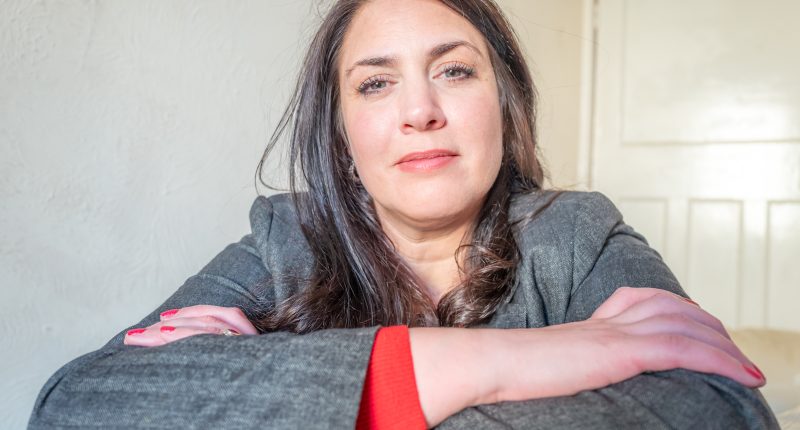MILLIONS of households already claim Universal Credit to top up their incomes, but there are thousands more who qualify but haven’t yet made a claim.
Policy in Practice estimates that over one million could be eligible for payments worth £9,600 on average.
The advantage of Universal Credit is that it combines a number of old-style “legacy benefits” including tax credits, jobseekers allowance and housing benefit into a single monthly payment.
It means you receive one payment instead of a number of smaller ones which can be harder to keep track of.
We spoke to Nichola Salvato, welfare rights adviser and campaigner, who’s answered the most common questions she receives about Universal Credit.
UC provides support for not just those out of work, but people on a low income too, which many don’t realise.
Read more in money
Just over 5million people receive the payments and 38% of them have a job.
The exact amount you’ll get depends on your particular circumstances.
The standard allowance is £368.74 per month if you’re single and over 25, for example, and higher for joint claims, or lower for those younger.
But you can get extra elements, for instance if you have children, housing costs and any disabilities, plus the overall amount may be capped.
Most read in Money
We explain more on the rates in full in our guide to payments here.
Nichola told The Sun: “Lots of us are struggling to make ends meet at the moment, between the cost of living crisis and Christmas on the horizon many families may be wondering if they are entitled to any help through Universal Credit.
“Depending on your circumstances you may be surprised to know that you could be entitled to help even if you are working.”
Here are the five most common UC questions answered.
Can I claim Universal Credit if I’m in work?
“You qualify for Universal Credit even if you’re in work and on a low income so is well worth looking into”, said Nichola.
“How much you get will depend on your earnings, you may get a Work Allowance and UC has a taper system so that your benefit will automatically be reduced as your earnings increase.”
So you can work while claiming Universal Credit, but the more hours you work and the more you take home in pay, the more your payments will be reduced.
The Universal Credit taper rate affects those claiming the benefit who are also working but are on low incomes.
The taper rate reduces the amount Brits get by 55p for every £1 earned over a certain amount.
How much that is depends on your circumstances, and some also get extra they can earn known as the work allowance.
You will be eligible for a work allowance if you (and/or your partner) either have:
- Responsibility for a child
- Limited capability for work
The monthly work allowances are set between £379 and £631 depending on whether or not you receive house support.
You can check your eligibility with a number of benefit calculators.
How long does a first Universal Credit claim take to process?
If you think you’re eligible for Universal Credit and feel ready to apply you can do this by visiting www.gov.uk/universal-credit.
You’ll need to fill in the online application which should take you about 20 minutes.
You’ll be required to answer questions about your income, savings and housing situation.
You will then be contacted to attend an in-person interview at your local job centre and will need to provide documentation to support your claim such as ID and tenancy agreement.
Nichola said: “It will be roughly five weeks between making your claim and receiving a payment”
“But in the interim period, you should be able to apply for a new claim advance to get you through.”
The advance payment loan is designed to help you bridge the gap while you are waiting for your first Universal Credit payment to kick in.
But the money does need to be paid back, and this means that the amount of Universal Credit you receive will be reduced until the cost of the loan has been repaid.
We’ve previously explained everything you need to know about UC advance payments.
How much Universal Credit will I get?
Nichola said: “The amount of Universal Credit you’ll receive depends on various factors, income, savings, housing costs and children living with you as well as your age.
“Your UC will be calculated based on a standard allowance, adjusted for your specific circumstances such as childcare costs or household member with disabilities or carer status.
“You can use an online benefits calculator to estimate your entitlement at www.entitled2.com.”
Everyone who is accepted on Universal Credit will be entitled to a Standard Allowance:
- Single and aged under 25: £292.11 per month
- Single and aged 25 or over: £368.74 per month
- Joint claimants both aged under 25: £458.51 per month
- Joint claimants where one is aged 25 or over: £578.82 per month
Once your household allowance is calculated, the DWP will take into account any additional claim elements such as children, housing, or disabilities.
For example, if your child is under the age of 16 then you can be entitled to:
- £314 per month for a first or only child born before 6 April 2017
- £269.58 per month per child in all other circumstances
We’ve already listed all the other elements you could be eligible for.
Can I get help with housing costs through Universal Credit?
Universal Credit can help you pay your rent, or part of it, as well as some service charges.
Nichola said: “UC includes an element for rented accommodation.
“How much you get will depend on whether you rent privately or from the Council or Housing Association, your bedroom entitlement and the Local Housing Allowance rates for your area.
“The housing element is usually paid directly to you and you will be responsible for paying the rent to your landlord unless you are in arrears in which case your landlord can put in a direct payment request to UC.”
For private tenants, the amount is calculated on the Local Housing Allowance where you reside, which determines rental prices in the area for the number of rooms you need.
For example, a single person without children will be able to claim the average cost of renting a one-bedroom flat in the area.
For social housing tenants, your benefit is calculated based on your eligible rent, which takes into account the number of rooms you actually need.
You’re allowed one bedroom for each adult couple, each person over 16, two children of the same sex under 16, two children under 10 regardless of gender, any other child, and an overnight carer who doesn’t live with you full time.
If you have more bedrooms than you need then your eligible rent is reduced by 14% for one spare or 15% for two or more spares.
If your household has no other income or savings then you’ll receive the full amount that you’re entitled to.
Speak to a benefits advisor to find out exactly how much you could get.
Can I claim other benefits on top of Universal Credit?
Most households on Universal Credit don’t realise that they can get up to £170 extra in benefits each week, according to Nichola.
If you suffer from long-term health conditions or disabilities, you can get cash help through Personal Independence Payment (PIP).
You can get PIP even if you’re working, have savings or are getting most other benefits.
The payments can be worth up to £172.75 a week, so if you don’t claim it already, check to see if you’re eligible.
PIP is available to those aged 16 or over but no fresh claims can be made if you’ve reached the State Pension age.
Crucially, you must also have a health condition or disability where you either have had difficulties with daily living or getting around (or both) for three months, and you expect these difficulties to continue for at least nine months (unless you’re terminally ill with less than 12 months to live).
Difficulties with daily living can include:
Read More on The Sun
- Preparing or eating food
- Washing, bathing and using the toilet
- Dressing and undressing
- Reading and communicating
- Managing your medicines or treatments
- Making decisions about money
- Engaging with other people
You can make a new Personal Independence Payment (PIP) claim by calling the Department for Work and Pensions (DWP) on 0800 917 2222.










